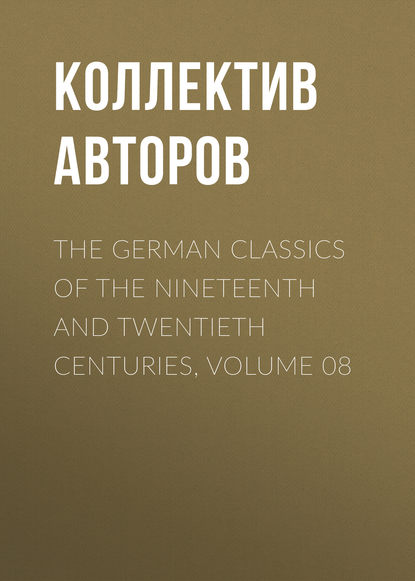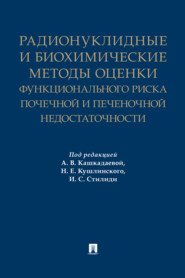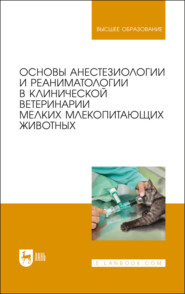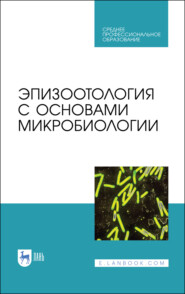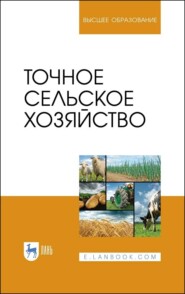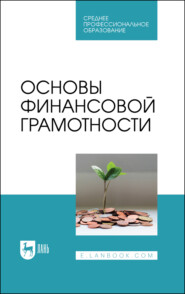По всем вопросам обращайтесь на: info@litportal.ru
(©) 2003-2024.
✖
The German Classics of the Nineteenth and Twentieth Centuries, Volume 08
Настройки чтения
Размер шрифта
Высота строк
Поля
Amrei could please Damie best by telling him the answers to riddles. The children still used to sit frequently by the house of their rich guardian, sometimes near the wagons, sometimes near the oven behind the house, where they used to warm themselves, especially in the autumn. Once Amrei asked:
"What's the best thing about an oven?"
"You know I can't guess anything," replied Damie, plaintively.
"Then I'll tell you:
'In the oven this is best, 'tis said,
That it never itself doth eat the bread.'"
And then, pointing to the wagons before the house, Amrei asked:
"What's full of holes, and yet holds? "—and without waiting for a reply, she gave the answer: "A chain!"
"Now you must let me ask you these riddles," said Damie.
And Amrei replied: "Yes, you may ask them. But do you see those sheep coming yonder? Now I know another riddle."
"No!" cried Damie, "no! Two are enough for me—I can't remember three!"
"Yes, you must hear this one too, or else I'll take the others back!"
And Damie kept repeating to himself, anxiously: "A chain," "Eat it itself," while Amrei asked:
"On which side have sheep the most wool?"—"Ba! ba! on the outside!" she sang merrily.
Damie now ran off to ask his playmates these riddles; he kept his fists tightly clenched, as if he were holding the riddles fast and was determined not to let them go. But when he got to his playmates, he remembered only the one about the chain; and Farmer Rodel's eldest son, whom he hadn't asked at all and who was much too old for that sort of thing, guessed the answer at once, and Damie ran back to his sister crying.
Little Amrei's cleverness at riddles soon began to be talked about in the village, and even rich, serious farmers, who seldom wasted many words on anybody, and least of all on a poor child, now and then condescended to ask little Amrei one. That she knew a great many herself was not strange, for she had probably learned them from Black Marianne; but that she was able to answer so many new ones caused general astonishment. Amrei would soon have been unable to go across the street or into the fields without being stopped and questioned, if she had not found out a remedy; she made it a rule that she would not answer a riddle for anybody, unless she might propose one in return, and she managed to think up such good ones that the people stood still as if spell-bound. Never had a poor child been so much noticed in the village as was this little Amrei. But, as she grew older, less attention was paid to her, for people look with sympathetic eyes only at the blossom and the fruit, and disregard the long period of transition during which the one is ripening into the other.
Before Amrei's school-days were over, Fate gave her a riddle that was difficult to solve.
The children had an uncle, a woodcutter, who lived some fifteen miles from Haldenbrunn, at Fluorn. They had seen him only once, and that was at their parents' funeral, when he had walked behind the magistrate, who had led the children by the hand. After that time the children often dreamt about their uncle at Fluorn. They were often told that this uncle was like their father, which made them still more anxious to see him; for although they still believed at times that their father and mother would some day suddenly reappear—it could not be that they had gone away forever—still, as the years rolled on, they gradually became reconciled to giving up this hope, especially after they had over and over again put berries on the graves, and had long been able to read the two names on the same black cross. They also almost entirely forgot about the uncle in Fluorn, for during many years they had heard nothing of him.
But one day the children were called into their guardian's house, and there sat a tall, heavy man with a brown face.
"Come here, children," said this man, as the children entered. "Don't you know me?" He had a dry, harsh voice.
The children looked at him with wondering eyes. Perhaps some remembrance of their father's voice awoke within them. The man continued:
"I am your father's brother. Come here, Lisbeth, and you too, Damie."
"My name's not Lisbeth—my name's Amrei," said the girl; and she began to cry. She did not offer her hand to her uncle. A feeling of estrangement made her tremble, when her own uncle thus called her by a wrong name; she very likely felt that there could be no real affection for her in anybody who did not know her name.
"If you are my uncle, why don't you know my name?" asked Amrei.
"You are a stupid child! Go and offer him your hand immediately!" commanded Farmer Rodel. And then he said to the stranger, half in a whisper: "She's a strange child. Black Marianne, who, you know, is a peculiar sort of person, has put all sorts of odd notions into her head."
Amrei looked around in astonishment, and gave her hand to her uncle, trembling. Damie, who had done so already, now said:
"Uncle, have you brought us anything?"
"I haven't much to bring. I bring myself, and you're to go with me. Do you know, Amrei, that it's not at all right for you not to like your uncle. You'd better come here and sit down beside me—nearer still. You see, your brother Damie is much more sensible. He looks more like our family, but you belong to us too."
A maid now came in with some man's clothing, which she laid on the table.
"These are your brother's clothes," said Farmer Rodel to the stranger; and the latter went on to say to Amrei:
"As you see, these are your father's clothes. We shall take them with us, and you shall go too—first to Fluorn, and then across the brook."
Amrei, trembling, touched her father's coat and his blue-striped vest. But the uncle lifted up the clothes, pointed to the worn-out elbows, and said to Farmer Rodel:
"These are worth very little—I won't have them valued at much. I don't even know if I can wear them over in America, without being laughed at."
Amrei seized the coat passionately. That her father's coat, which she had looked upon as a costly and invaluable treasure, should be pronounced of little value, seemed to grieve her, and that these clothes were to be worn in America, and ridiculed there, almost bewildered her. And, anyway, what was the meaning of this talk about America? This mystery was soon cleared up, when Farmer Rodel's wife came, and with her, Black Marianne; for Dame Rodel said:
"Harkye, husband—to my mind this thing should not be done so fast, this sending the children off to America with that man."
"But he is their only living relative, Josenhans' brother."
"Yes, to be sure. But until now he has not done much to show that he is a relative; and I fancy that this cannot be done without the approval of the Council, and even the Council cannot do it alone. The children have a legal right to live here, which cannot be taken away from them in their sleep, so to speak—for the children are not yet in a position to say what they want themselves. It's like carrying people off in their sleep."
"My Amrei is intelligent enough. She's thirteen now, but more clever than many a person of thirty, and she knows what she wants," said Black Marianne.
"You two ought to have been town-councilors," said Farmer Rodel. "But it's my opinion, too, that the children ought not to be tied to a rope, like calves, and dragged away. Well, let the man talk with them himself, and then we shall see what further is to be done. He is after all their natural protector, and has the right to stand in their father's place, if he likes. Harkye; do you take a little walk with your brother's children outside the village, and you women stay here, and let nobody try to persuade or dissuade them."
The woodcutter took the two children by the hand, and went out of the room and out of the house with them. In the street he asked the children:
"Whither shall we go?"
"If you want to be our father, go home with us," suggested Damie. "Our house is down yonder."
"Is it open?" asked the uncle.
"No, but Coaly Mathew has the key. But he has never let us go in. I'll run on and get the key."
Damie released himself quickly, and ran off. Amrei felt like a prisoner as her uncle led her along by the hand. He spoke earnestly and confidentially to her now, however, and explained, almost as if he were excusing himself, that he had a large family of his own and, that he could hardly get along with his wife and five children. But now a man, who was the owner of large forests in America, had offered him a free passage across the ocean, and in five years, when he had cleared away the forest, he was to have a large piece of the best farm-land as his own property. In gratitude to God, who had bestowed this upon him for himself and his family, he had immediately made up his mind to do a good deed by taking his brother's children with him. But he was not going to compel them to go; indeed, he would take them only on the condition that they should turn to him with their whole hearts and look upon him as their second father.
Amrei looked at him with eyes of wonder. If she could only bring herself to love this man! But she was almost afraid of him—she could not help it. And to have him thus fall from the clouds, as it were, and compel her to love him, rather turned her against him.
"Where is your wife?" asked Amrei. She very likely felt that a woman would have broached the subject in a more gentle and gradual manner.
"I will tell you honestly," answered her uncle. "My wife does not interfere in this matter, and says she will neither persuade nor dissuade me. She is a little sharp, but only at first—if you are good to her, and you are a sensible child, you can twist her around your finger. And if, once in a while, anything should happen to you that you don't like, remember that you are at your father's brother's, and tell me about it alone. I will help you all I can, and you shall see that your real life is just beginning."
Amrei's eyes filled with tears at these words; and yet she could say nothing, for she felt estranged toward this man. His voice appealed to her, but when she looked at him, she felt as if she would have liked to run away.
Damie now came with the key. Amrei started to take it from him, but he would not give it up. With the peculiar pedantic conscientiousness of a child he declared that he had faithfully promised Coaly Mathew's wife to give it to nobody but his uncle. Accordingly the uncle took it from him, and it seemed to Amrei as if a magic secret door were being opened when the key for the first time rattled in the lock and turned—the hasp went down and the door opened! A strange chill, like that of a vault, came creeping from the black front-room, which had also served as a kitchen. A little heap of ashes still lay on the hearth, and on the door the initials of Caspar Melchior Balthasar and the date of the parent's death, were written in chalk. Amrei read it aloud—her own father had written it.





